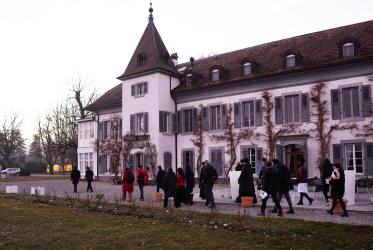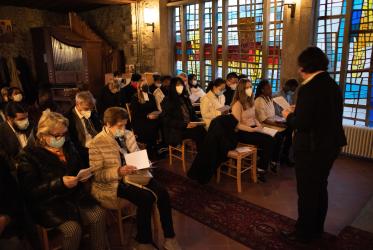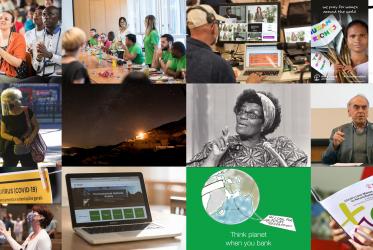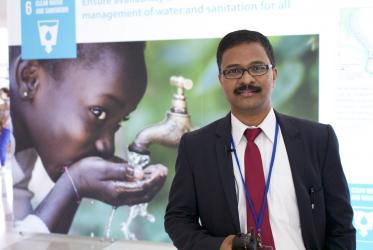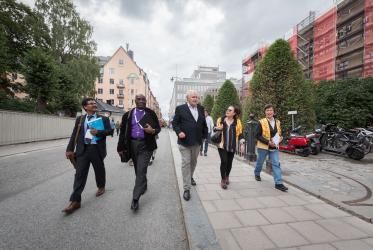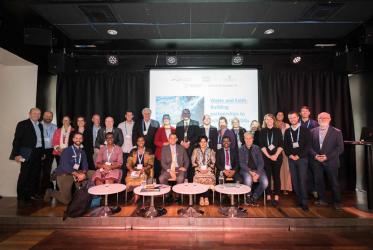Displaying 1 - 20 of 32
Bossey student Carolina Zamorano reflects on study visit to Rome
02 February 2022
Applications open anew for Bossey online course in ecumenism
13 January 2022
WCC President Wejryd: ‘Water, in many ways, represents God’
27 September 2019
WCC pays tribute to ecumenist pioneer
08 May 2019
Paving the way for ecumenical studies, learning English in Bossey
24 September 2018
Doing his best without being the best
07 September 2018
Faith and Water: Translating words into action
30 August 2018
Emily Welty: tide of hope for a world free from nuclear weapons
19 September 2017
